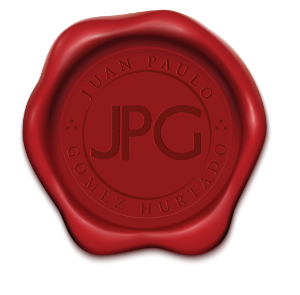Juan Paulo Gómez Hurtado directs the Municipal Band

MUSIC REVIEW OF RAMÓN G. BALADO
“From the pasodoble to the Slavic dance”, is the title of the program planned by the Municipal Band at the Teatro Principal - 12 pm -, this time directed by Juan Paulo Gómez Hurtado, who also participates as the author of the pasodoble Alfonso Martínez. Among his awards, a First Prize in the Liceo Dinu Lipati International Competition, in Bucharest (1998), another in the II Competition of the OF Oltenia in Craiova (2000), a Mention in the 47th Edition of the International of Besanón, chaired by S.Comisiona and Special Prize “Of the Orchestra” in conducting by O. Kisiniev (2011). He had as teachers Joerg Bierhance in Freiburg, Salvador Mas, in the Wiener Meisterkurse für Musik, López Cobos, in a specialization course in Alcalá, G.Gelmetti at the Ac. Chigiana from Siena, and Colin Metters in Zagreb. Among the groups he directed, the following stand out: the OF Paul Constantinescu of Ploiesti, the O. of the State of Vidin, the Camerata of Freiburg, the Berlin Kammerphilharmonie, the OF of the State of Botosani or the Young O. of the OSG and the Young O. of the S. of Madrid. Juan Paulo himself is responsible for the arrangement of the “Dances of Galanta” by Zoltan Kodaly, within this exchange of cultures in the distance although with common aspects. The meeting of the composer with Bela Bartok would be decisive in the evolution and approaches of both and these “Dances of Galanta” will be a living example, born as a commission for the 80th anniversary of the Budapest Philharmonic Society, with its premiere on 23 October 1933, being in its entirety a reflection of his experiences in that town, in which the typical Gypsy orchestra stood out, from which the Kecskemet composer knew how to take advantage of his heritage, borrowing what would immediately be known as folklore. imaginary. At the base and foundation, the typical rhythm of the verbunks, vital and transmitters of an ancestral nostalgia that the teachers of that generation knew how to take to a sublime degree.
Joaquín Turina will be heard for La Fiesta de “San Juan de Aznalfarache”, the third beat of the “Sevillian Symphony Op. 23”, a work for orchestra from 1920, presented in the Gran Casino de San Sebastián Composition Competition, with a jury made up of Tomás Bretón, Ricardo Villa and Jesús Guridi. He won that contest in which Zamacois and Conrado del Campo also received awards. For greater glory, the work had the benefit of being premiered by the famous Arbós Symphony. With the movement that we will hear, “Panorama” and “By the Guadalquivir River” are included. There is a piano transcription made by Turina. “The Festival of San Juan de Aznalfarache” begins with a festive and luminous atmosphere, closing cyclically with an exalted recounting of the characteristic themes of the previous movements. Originality prevails over any formal consideration. For Federico Sopeña, the work summarizes and redeems the entire battered Spanish past and the great symphonic form. A very familiar Tchaikovsky for the “Italian Capricho Op. Also the “Spanish Capricho” by Rimsky Korsakov, always with such a good poster and in which the author used songs from a collection by J. Inzenga, Echoes of Spain. Collection of popular songs and dances.
